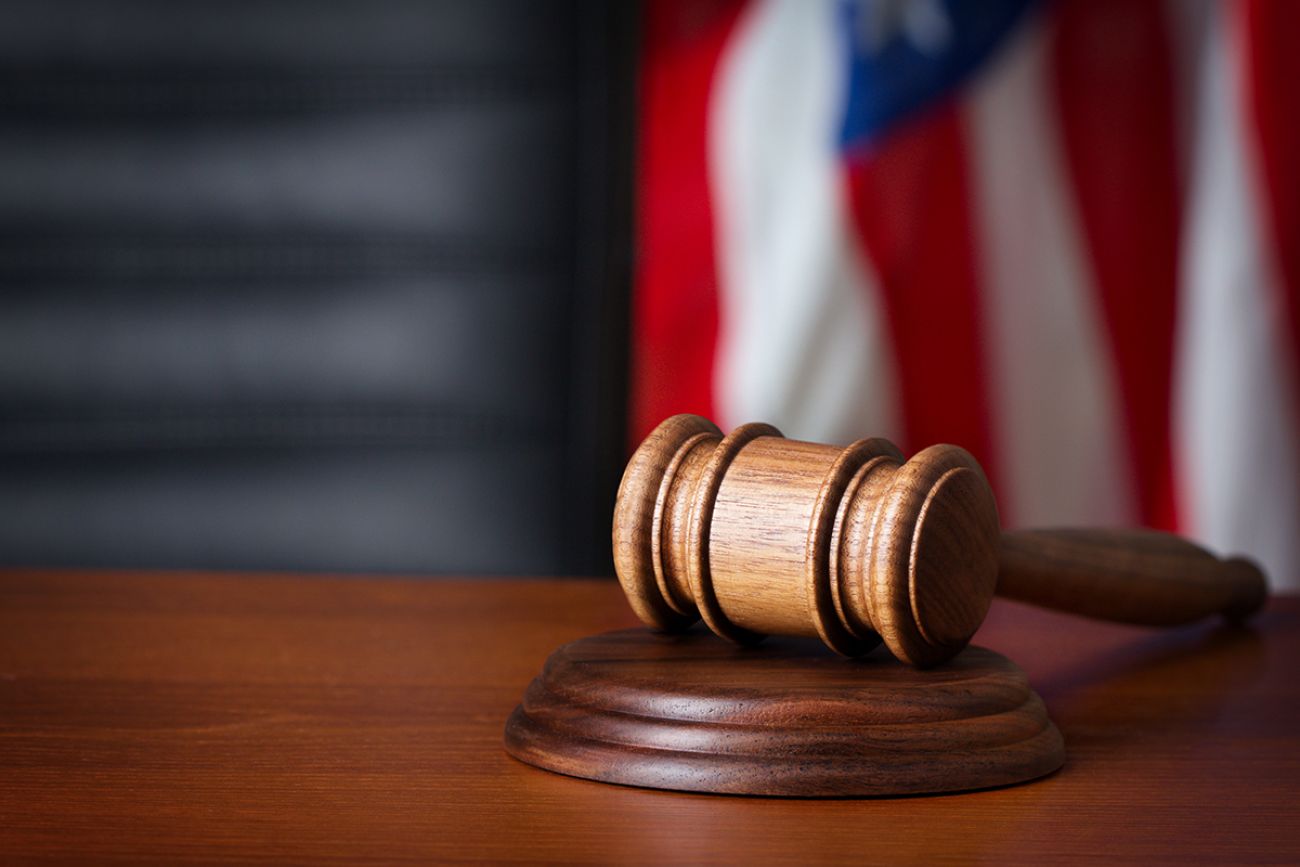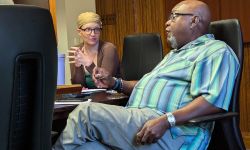Still no verdict in Whitmer kidnapping case; jury to deliberate for third day

Jurors weighing the case of four men accused of plotting to kidnap Democratic Gov. Gretchen Whitmer will enter their third day of deliberations on Wednesday.
The 12 jurors deliberated for eight hours for the second straight day on Tuesday. So far, they have asked U.S. District Judge Robert Jonker for the definition of “weapon” and to review transcripts of witness testimonies.
Jonker denied the transcript request Tuesday, advising jurors to use their collective memory because transcripts don’t capture the “richness of oral communication.” He also noted that they are expected to be 3,400 pages long and are not yet ready.
Related:
- Plotters or dupes? Gretchen Whitmer kidnapping case goes to jury.
- Whitmer kidnapping trial: Accused plotter denies role as case nears jurors
Adam Fox of Wyoming, Michigan, Daniel Harris of Lake Orion, Brandon Caserta of Canton Township and Barry Croft from Delaware face up to life in prison if convicted on kidnapping and weapon of mass destruction charges.
During closing arguments on Friday, prosecutors contended the men trained for weeks to kidnap the Democratic governor in 2020 from her vacation home and blow up a bridge to slow police response.
During the nearly four-week trial, prosecutors relied on hundreds of hours of secret recordings from informants, videos and testimony from two plotters who have already pleaded guilty to kidnapping charges.
Defense attorneys contend the men never engaged to a specific plot and the scheme was orchestrated by an FBI informant, “Big Dan” Chappel. Lawyers say the defendants engaged in nothing more than tough talk, and FBI witnesses have credibility problems.
Trial veterans who spoke to Bridge Michigan cautioned against drawing any conclusions from the length of deliberations.
“As lawyers, we have absolutely no idea what goes on back there,” said Michael Rajat, a Detroit attorney who persuaded a judge to dismiss charges in the 2010 Hutaree case over allegations that religious extremists tried to kill a police officer.
“We can play games and try to figure it out, but we really don’t know until they come out with a verdict.”
Rajat wasn’t surprised that Jonker denied jurors’ request to review a transcript of the testimonies. He said he’s seen similar requests be made in other trials and the judge almost always says no.
“That would just delay things,” Rajat said. “There are all sorts of factors, like a witness’s body demeanor when answering questions, that jurors can take notes on and refer to. When I first started out, jurors weren’t allowed to take notes. Now, it seems to be common practice, especially in longer trials.”
Marquette County Prosecutor Matt Wiese said it’s not unusual in a complex case for a jury to be out for an extended period of time.
“What that tells me is that the jury is doing their due diligence and making sure they cover all the charges by analyzing and evaluating all the evidence that came in during the trial,” Wiese said.
“They have to do that as to each defendant, as to each charge, so that does take some time.”
See what new members are saying about why they donated to Bridge Michigan:
- “In order for this information to be accurate and unbiased it must be underwritten by its readers, not by special interests.” - Larry S.
- “Not many other media sources report on the topics Bridge does.” - Susan B.
- “Your journalism is outstanding and rare these days.” - Mark S.
If you want to ensure the future of nonpartisan, nonprofit Michigan journalism, please become a member today. You, too, will be asked why you donated and maybe we'll feature your quote next time!




